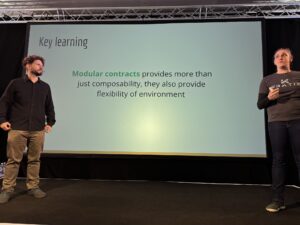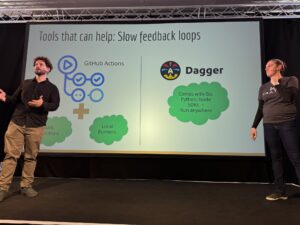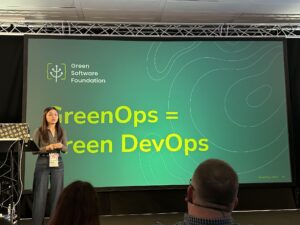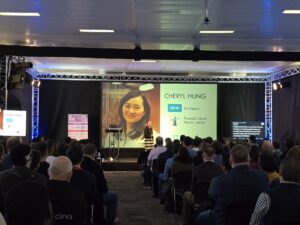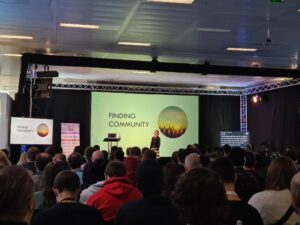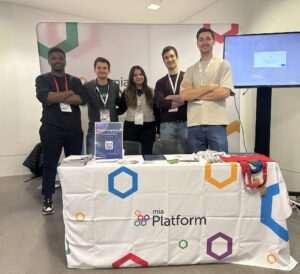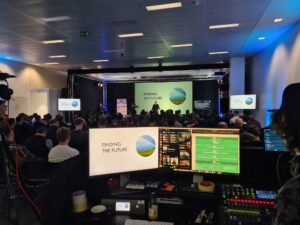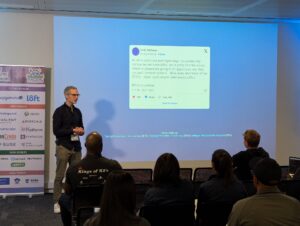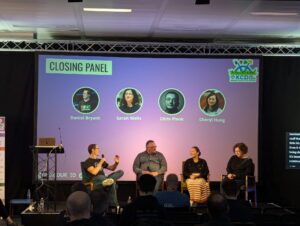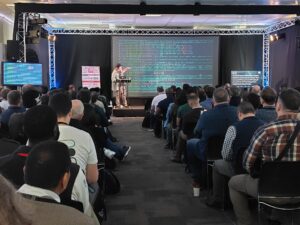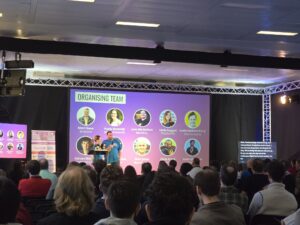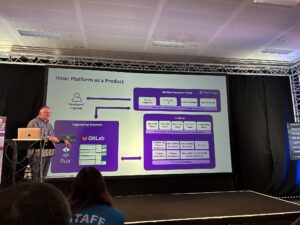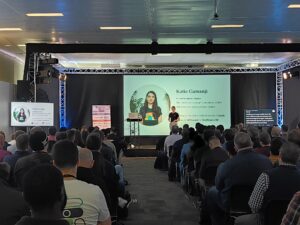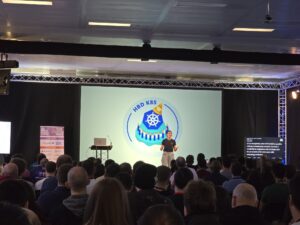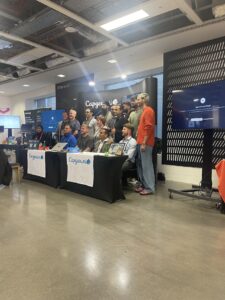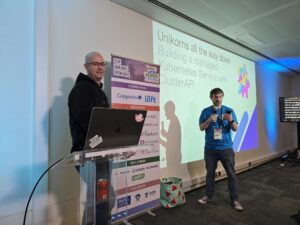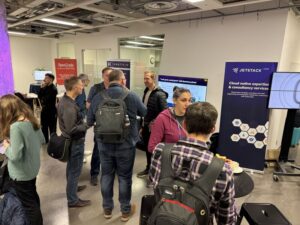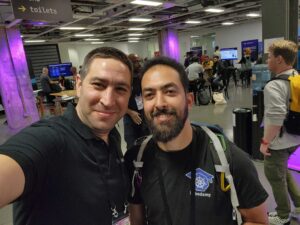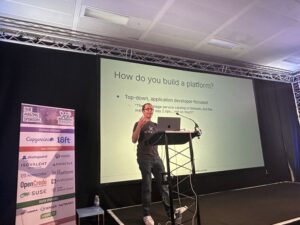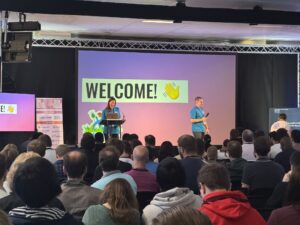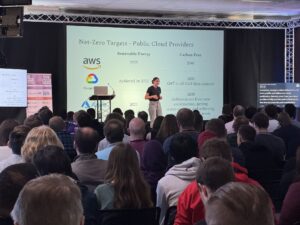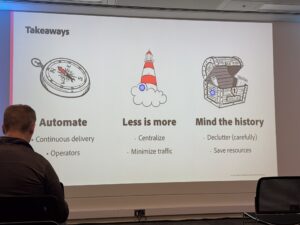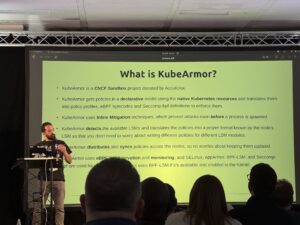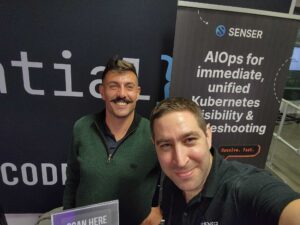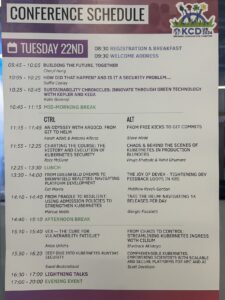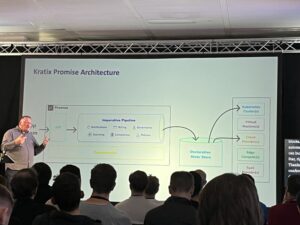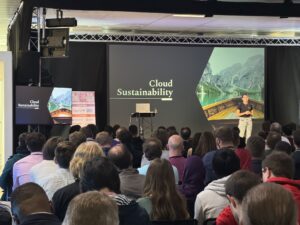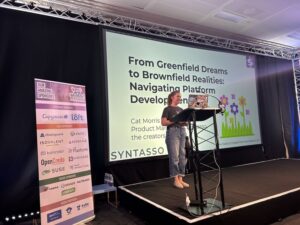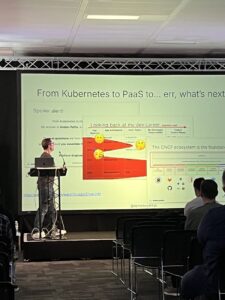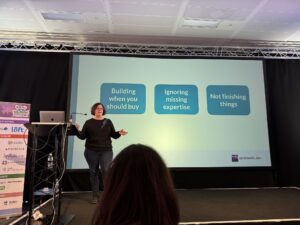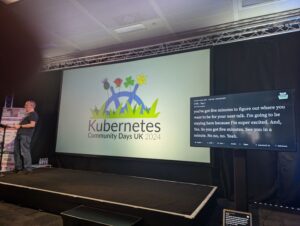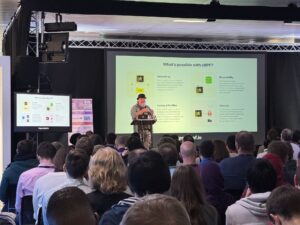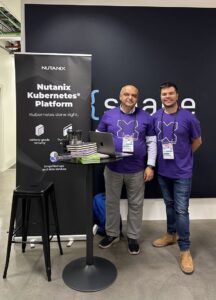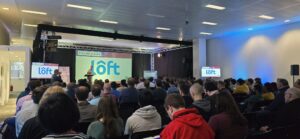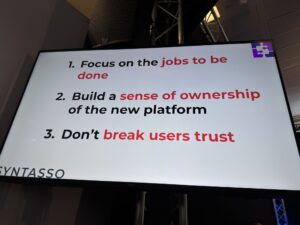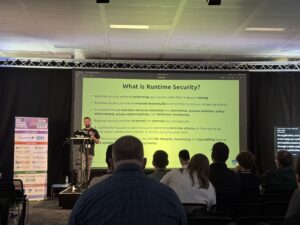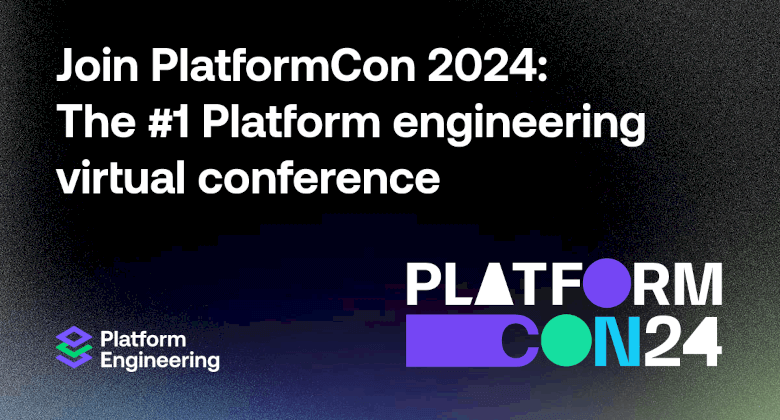
Kubernetes Community Days UK 2024 KCDUK closing thoughts, reviews and takeaways
#1 Container Security Workshop across the globe
Sign up for the early December 2024 online workshop now.
As we reflect on the excitement of Kubernetes Community Days UK 2024, held at the vibrant CodeNode London on the 22nd and 23rd of October, it’s clear that this event was a resounding success. It delivered groundbreaking insights, fostered meaningful connections, and showcased the strength of the Kubernetes ecosystem. The event truly embodied the spirit of innovation, collaboration, and shared passion that drives Kubernetes forward.
In this post, we extend our heartfelt gratitude to the organisers, speakers, sponsors, and participants for their contributions. We’ll also share key takeaways from some of the standout sessions that deepened our understanding of the Kubernetes landscape. Together, we are shaping the future of cloud-native computing and Kubernetes.
YouTube videos will be added soon.
A Big Thank You to the Organisers
We are deeply thankful to the organisers for delivering a smoothly executed event. From seamless registration to curating an engaging agenda, your dedication and hard work were evident in every detail. Bringing together such a diverse community of experts and enthusiasts is no small feat, and your efforts created a space where learning, networking, and innovation thrive.
Follow our social media:
https://linkedin.com/in/ssbostan
https://linkedin.com/company/kubedemy
Building a Stronger Kubernetes Community
One of the most heartwarming aspects of Kubernetes Community Days UK 2024 was the sense of community that permeated every interaction. Whether during the sessions, in hallway discussions, or at impromptu meetups, the willingness to share knowledge and help one another was palpable. Kubernetes is much more than a technology; it’s a global community of innovators working towards common goals; it’s an ecosystem.
The event underscored that the Kubernetes community thrives because of its members’ collaborative spirit—people who contribute code, write documentation, mentor newcomers, and share their experiences. This collective effort continues to drive the ecosystem forward.
KCD UK 2024 Day 1:
The first day of Kubernetes Community Days UK 2024 was filled with insightful talks and keynotes that offered fresh perspectives, real-world experiences, and practical advice for working with Kubernetes. Each session brought unique value to the attendees, contributing to a rich tapestry of learning and collaboration. Below are the highlights of each talk from day one:
Keynote: Building the Future, Together – Cheryl Hung
Cheryl Hung kicked off the day with a heartfelt keynote that resonated with the community spirit of Kubernetes. As one of the earliest cloud-native pioneers, Cheryl shared personal stories of growth, funny encounters with industry “celebrities,” and the importance of community-driven innovation. Her message of collaboration and inclusivity was inspiring, reminding us that Kubernetes is more than just a technology—it’s a movement driven by passionate people.
Keynote: How Did That Happen? And Is It a Security Problem? – Duffie Cooley
Duffie Cooley’s keynote was a masterclass in Kubernetes security. He took us through the intricacies of understanding attack surfaces, real-world vulnerabilities, and what to look for when assessing a project’s security. Duffie highlighted practical steps for improving security, whether you are a Kubernetes consumer, contributor, or maintainer. His session was packed with actionable insights, leaving the audience better equipped to handle security challenges.
Keynote: Sustainability Chronicles: Innovate Through Green Technology with Kepler and KEDA – Katie Gamanji
Katie Gamanji brought a powerful and timely message about environmental sustainability in cloud-native computing. She urged technologists to think about the environmental impact of their infrastructure and introduced Kepler and KEDA as tools to innovate through green technology. Katie’s session was both thought-provoking and practical, offering clear steps to make Kubernetes deployments more sustainable.
An Odyssey with ArgoCD: From Git to Helm
This session dived deep into GitOps with ArgoCD, providing a real-world case study of the team’s transition from using Git repositories to Helm charts for managing Kubernetes clusters. The speakers shared their experiences with the trade-offs of different approaches, offering valuable insights into improving GitOps workflows. This talk was particularly beneficial for practitioners looking to streamline their continuous delivery processes.
From Free Kicks to Git Commits
A truly unique session, this talk traced the inspiring journey of a former professional footballer who transitioned into the world of Kubernetes and tech. The speaker drew meaningful parallels between teamwork and strategy in football and orchestrating containers in Kubernetes. It was a testament to how diverse backgrounds can bring fresh perspectives to technology, making the talk both motivational and highly relevant for anyone considering a career shift into tech.
Charting the Course: The History and Evolution of Kubernetes Security
This talk offered a fascinating historical perspective on Kubernetes security. By examining the evolution of security features and vulnerabilities in Kubernetes over the past decade, the speaker provided a comprehensive overview of what has improved and what challenges remain. The audience gained a deeper understanding of Kubernetes’ security journey and the tools now available to mitigate risks, making this session a valuable resource for security-conscious teams.
Chaos & Behind the Scenes of Kubernetes in Production Blunders
Tune AI’s session gave a candid look into the chaos of running Kubernetes in production. The team shared real-world incidents, including resource deletions and Terraform state loss, and explained how they overcame these challenges. This talk was filled with practical takeaways, helping attendees learn from the mistakes made and the solutions implemented. It was an excellent reminder that even in the most chaotic situations.
From Greenfield Dreams to Brownfield Realities: Navigating Platform Development
This session explored the reality of platform engineering in brownfield environments. Cat provided practical strategies for turning legacy systems into powerful platforms, embracing the challenges and quirks of inherited technology. The talk was insightful for anyone working in environments where they need to modernise existing infrastructure rather than starting from scratch, offering practical tips on thriving in a brownfield context.
The Joy of DevEx – Tightening Dev Feedback Loops in Kubernetes
This session tackled the challenges of local testing for Kubernetes deployments, offering practical solutions for tightening developer feedback loops. By using tools like Colima, KIND, and custom configurations, the speaker demonstrated how to create more effective local testing environments that mirror cloud-based deployments. Attendees left with actionable tips to improve their development experience, ultimately reducing costs and speeding up delivery.
From Fragile to Resilient: Using Admission Policies to Strengthen Kubernetes
The speaker provided an in-depth look at using CEL-based Admission Policies to improve the resilience of Kubernetes clusters. By comparing these policies to traditional webhook-based alternatives, the talk demonstrated how they can reduce fragility while maintaining flexibility in cluster configurations. This session was particularly useful for teams looking to enhance their cluster security and reliability through more robust admission controls.
Take the Helm! Navigating 1k Releases per Day
Managing over 20,000 Helm releases across 10 regions might sound overwhelming, but this session provided a clear roadmap for handling large-scale Kubernetes deployments. The speakers shared their experiences with Kubernetes API bottlenecks, secret management, and other challenges, offering solutions for improving deployment efficiency. It was an excellent session for anyone scaling their Kubernetes infrastructure and Helm releases.
Platform Orchestrators: The Missing Middle of Internal Developer Platforms?
This talk addressed the missing piece in platform engineering: platform orchestrators. The speaker argued that many developer platforms lack a critical component to manage lifecycle tasks, leading to inefficiencies. By introducing the concept of a Platform Orchestrator, this session offered practical advice for organisations looking to streamline their internal developer platforms and reduce operational complexity.
From Chaos to Control: Streamlining Kubernetes Ingress with Cilium
This session focused on Kubernetes Ingress management and how to optimise it using Cilium’s eBPF-powered features. As organisations scale their cloud-native deployments, Ingress management becomes critical for performance and security. The speaker provided a clear guide on using Cilium to address common bottlenecks and enhance the security of Kubernetes Ingress, making it a must-attend for those managing complex deployments.
Deep Dive into Kubernetes Runtime Security
This session offered an in-depth exploration of Kubernetes runtime security tools like SELinux, AppArmor, and Seccomp-bpf. The speaker explained how to use the KubeArmor CNCF project to monitor container actions and enforce security policies, providing valuable insights into strengthening runtime security in Kubernetes clusters. This talk was highly beneficial for teams focused on bolstering the security of their Kubernetes deployments.
#1 Container Security Workshop across the globe
Sign up for the early December 2024 online workshop now.
Comprehensible Kubernetes: Empowering Scientists with Scalable and Secure Platforms for HPC and AI
This session tackled the challenges of bringing Kubernetes to non-technical users, specifically scientists and researchers working in HPC and AI. By using real-world case studies, the speaker demonstrated how to build scalable, secure platforms using Kubernetes, making it more accessible to users outside the tech sphere. This talk was a great example of Kubernetes’ versatility and its potential to revolutionise fields like scientific research.
The Journey from Old-Cluster to NewNewNewCluster While Maintaining Support of the DAFNI Platform
This session detailed the complex process of migrating an old Kubernetes cluster to a modern, scalable solution. The team shared their strategies for managing dependencies, migrating data, and ensuring continuity during the transition. It was a valuable case study for anyone facing the challenge of modernising legacy Kubernetes infrastructure while maintaining uptime and quality.
/config – The Configuration Endpoint Your API Always Needed
This talk addressed the common pain point of API configuration management by introducing the concept of a /config endpoint. The speaker explained how real-time configuration access could improve debugging and reduce friction for users and developers. This session provided a simple yet powerful solution to a problem many teams face.
Building an Application-Specific Container Image Builder
In this highly technical session, the speaker shared their journey of building a custom container image builder to support a specific application, offering deep insights into the challenges of working with OCI image specs and container file formats. This talk was a goldmine for Kubernetes users interested in container image optimisation.
KCD UK 2024 Day 2:
Keynote: Building a Platform People Actually Use – Sarah Wells
In her keynote, Sarah Wells addresses the common frustration of developing platforms that fail to achieve widespread adoption. She argues that instead of forcing users onto a platform, the focus should be on creating solutions that genuinely meet user needs. Sarah emphasizes the importance of safety and simplicity in design, as well as thorough documentation and promotion to ensure users understand the platform’s capabilities. Her discussion of the “paved road” approach highlights how valuable feedback can drive innovation in critical areas. Attendees will leave with a clearer understanding of the principles to consider when deciding what to build into their platforms and how to effectively execute those ideas.
Keynote: Natwest Bank’s Platform Engineering and Platform as a Product Journey to Date – Chris Plank
In another compelling keynote, Chris Plank presents insights into how NatWest Bank has been developing its platform capabilities within the Hosting Solutions division over the past year. As a representative of one of the UK’s “big four” banks, Chris shares a unique perspective from a large, regulated financial services organization, discussing the motivations behind their platform journey and the establishment of a cross-functional team. Highlighting their GitOps approach, he details the integration of various tools, such as Kubernetes, Backstage, and Flux, to enhance developer experience. The talk not only covers progress and lessons learned but also provides valuable takeaways that attendees can apply to their own initiatives.
When Platforms Meet Application Developers
This session examines the crucial relationship between platform engineers and application developers. It explores how application tech stacks significantly influence platform interfaces, practices, and adoption rates. The presenters share three strategies for making platforms more developer-friendly, focusing on how platform engineers can learn from application development teams. They delve into architectural patterns already employed by developers and discuss how these can inform platform design. Furthermore, the session addresses the importance of reducing cognitive load, particularly regarding Kubernetes dependencies, and highlights the benefits of fostering collaboration across both sides of the platform.
The Operator Antipattern
In this talk, the speaker addresses the complexities and management overhead that come with the proliferation of custom resource definitions in Kubernetes clusters. They reflect on the evolution from the initial CoreOS Etcd operator to the widespread use of operators across various cluster components. This presentation provides a critical examination of when custom resources are beneficial and when they may complicate the management of Kubernetes environments. Attendees will gain insights into simplifying their Kubernetes architecture and learn to identify situations where a more straightforward approach may suffice.
How Many Clusters Do You Need?
This session tackles a common dilemma faced by organizations managing Kubernetes. The speaker presents various archetypes and factors to consider when determining the appropriate number of clusters, from production environments to regional deployments. By addressing the trade-offs between robust automation and developer productivity, this talk offers a framework for attendees to navigate cluster management complexities. The session promises to provide solutions that minimize operational toil while maximizing efficiency.
Building a Self-Service Kubernetes Platform with Open Source Tools
The focus of this session is on empowering development teams through self-service capabilities. It explores how to construct a self-service Kubernetes platform using popular open-source tools like Kubernetes Dashboard, Helm, Kustomize, and Kubeapps. Attendees will learn how to create an environment that balances control and governance with the autonomy needed for innovation.
Testing in Modern CI/CD Pipelines: The Good, The Bad, and The Ugly
This presentation delves into the challenges of testing within Continuous Integration and Continuous Deployment (CI/CD) frameworks. As organizations increasingly adopt CI/CD practices, the complexity of testing processes also rises. The session explores the various hurdles teams encounter and discusses diverse tools and methodologies that can streamline testing efforts. Attendees will gain insights into orchestrating comprehensive testing strategies, from application to infrastructure testing, ultimately facilitating seamless deployments.
Unikorns All the Way Down: Building a Managed Kubernetes Service with ClusterAPI
The speaker introduces the concept of creating and operating a managed Kubernetes service using ClusterAPI alongside tools like ArgoCD and vCluster. This session outlines the motivations behind the initiative, providing a foundational understanding of ClusterAPI and how it integrates into a user-friendly self-service API. Attendees will learn about the essential components developed to ensure the service is reliable and secure, making this a valuable session for organizations looking to streamline their Kubernetes management.
Writing eBPF Programs to Run in Kubernetes
This session offers a technical exploration of the eBPF framework and its integration with Kubernetes. The speaker discusses the complexities introduced by containerized environments, where traditional assumptions about system architecture are challenged. By guiding attendees through the nuances of eBPF and its application within Kubernetes, this session aims to equip developers with the knowledge necessary to navigate this advanced topic effectively.
Scaling to Success: Monzo’s Journey in Cost-Optimized Kubernetes Autoscaling
This presentation provides an in-depth look at how Monzo manages the autoscaling of its Kubernetes worker nodes to support over 2,800 microservices. The talk highlights the challenges of scaling a cluster to meet varying workload demands while optimizing for cost. Attendees will learn about best practices in configuring autoscaling at scale, ensuring that Monzo’s approach can inspire others looking to balance performance and cost-efficiency.
I’ll Let Myself In: Kubernetes Privilege Escalation Tactics
This session explores security vulnerabilities within Kubernetes, aiming to educate attendees on potential risks. The speaker presents a learner-friendly yet advanced dive into various exploitation techniques that can arise from both trusted and unprivileged user interactions. By discussing best practices for detection and tailored defences against different adversary levels, this talk seeks to empower security teams with effective strategies for safeguarding their Kubernetes clusters, workloads, deployments and environments.
A Call to Action: Let’s Keep Contributing!
As we wrap up our reflections, we encourage everyone to stay engaged and continue contributing to the Kubernetes ecosystem. There are so many ways to get involved:
- Contribute to open-source projects and help improve the tools we all rely on.
- Join a local Kubernetes user group or attend meetups to exchange knowledge.
- Share your experience, whether through blog posts, talks, or mentorship.
- Promote sustainability by considering the environmental impact of your cloud-native projects. It’s not just about Kubernetes; It’s about our home, Earth.
Let’s keep the momentum going and continue building a future where Kubernetes remains a beacon of innovation, openness, and collaboration.
#1 Container Security Workshop across the globe
Sign up for the early December 2024 online workshop now.
Final Thoughts: A Bright Future Ahead
Kubernetes Community Days UK 2024 reminded us that the future is bright for the Kubernetes ecosystem. The keynotes and sessions inspired us to push the boundaries of what’s possible with Kubernetes while also reinforcing the importance of security, sustainability, and community-driven development. To all the organisers, speakers, sponsors, and participants: we extend our deepest thanks for making this event a success. The learning, connections, and innovations shared over these two days will help us all grow. Together, we are not just building platforms and clusters—we are building the future of cloud-native computing.
YouTube videos will be added soon.
See you next year!

